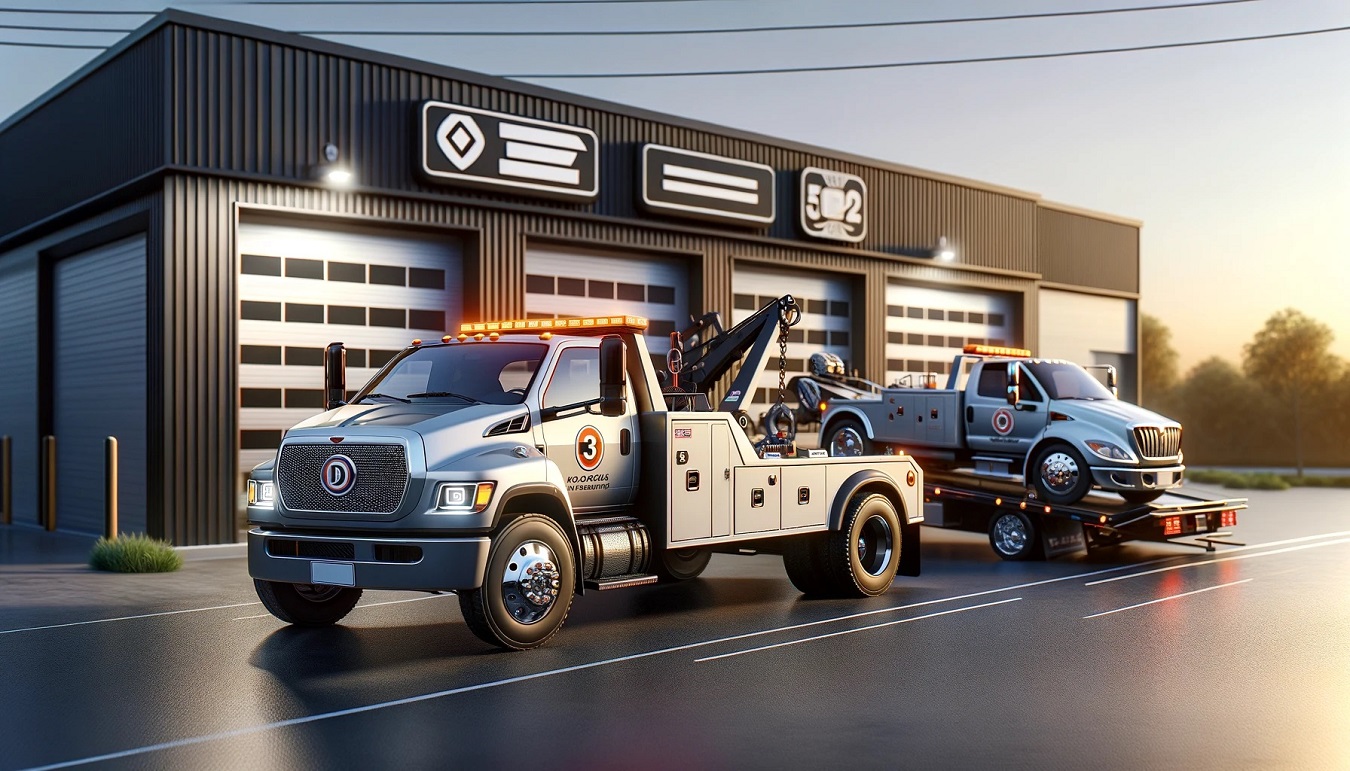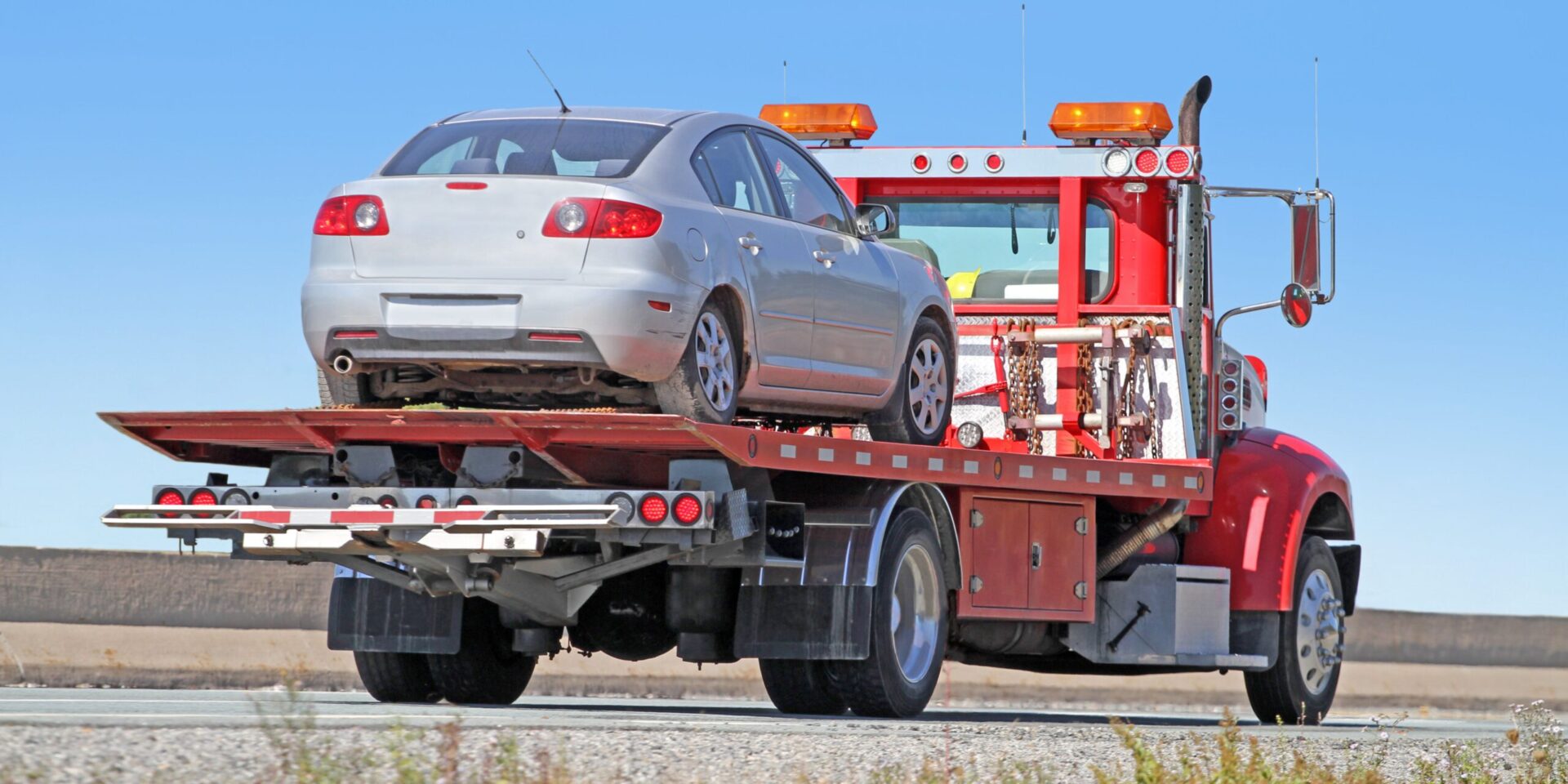10 Essential Steps to Launch a Tow Truck Business
Discover the top 10 crucial steps you need to follow to successfully start your tow truck business today.

Understanding how to start a tow truck business is crucial for anyone looking to venture into the towing industry. This guide will walk you through the essential steps required to get your tow truck operation up and running. Each step is critical in ensuring a successful launch, from securing the necessary permits and licenses to investing in the right equipment and marketing your services effectively. So let's dive in and explore the top 10 steps to launch your tow truck business and steer towards success.
How to Start a Tow Truck Business
Starting a tow truck business can be a rewarding venture if you know the ropes. The process involves more than just buying a tow truck; it requires careful planning, adherence to legal requirements, and strategic marketing. Whether you’re aiming to provide emergency roadside assistance or vehicle relocation services, understanding the foundational steps can set you on the path to a profitable business.
List of Top Choices
- Understand Your Market
- Draft a Business Plan
- Secure Funding
- Choose the Right Vehicle
- Obtain Necessary Licenses and Permits
- Get Insurance
- Invest in the Right Tools and Equipment
- Build Your Brand and Marketing Strategy
- Launch Your Website and Online Presence
- Know Your Operations and Safety Protocols
Understand Your Market

- Identifying your target audience
- Understanding local demand
- Researching your competition
Understanding your market is a fundamental step in launching a tow truck business. Identifying your target audience helps tailor your services to meet specific needs, whether for individual car owners or businesses. Assessing local demand ensures there's a sufficient market for your services, while a comprehensive analysis of your competition reveals opportunities for differentiation. This deep dive into the market informs strategic decisions, laying a solid foundation for success.
Draft a Business Plan
- Defining business objectives and strategies
- Detailing your services and pricing
- Outlining operational plans
A strong business plan is your roadmap to success, outlining your vision, strategies, and how you plan to achieve your objectives. It clarifies the services you're offering, your pricing model, and how your business operations will be structured. This comprehensive planning document is crucial not just for guiding your launch and growth but also for securing funding, as it demonstrates your business's potential for profitability and sustainable operation.
Secure Funding
- Calculating initial startup costs
- Exploring various financing options
- Preparing for unexpected expenses
Securing sufficient funding is critical to cover the startup costs of your tow truck business, which can be substantial. After calculating these costs, explore various funding sources, including traditional loans, investor capital, and grants. It's also vital to plan for unforeseen expenses that can arise during the startup phase, ensuring your business doesn’t run out of funds before it starts generating revenue. This financial groundwork supports a stable business launch and growth.
Choose the Right Vehicle

- Evaluating tow truck types and their functionalities
- Considering cost versus capabilities
- Factoring in maintenance and operational costs
The heart of your tow truck business lies in selecting the right vehicle. With various types of tow trucks available, each suited to different services, it’s crucial to choose one that aligns with your business offerings. You must balance the initial cost with the truck's capabilities, ensuring it can meet the demands of your services. Also, consider the long-term maintenance and operational costs, as these impact your profitability. The right vehicle is a key asset in delivering efficient and reliable services.
Obtain Necessary Licenses and Permits
- Researching specific local and state requirements
- Applying for a business license
- Understanding towing-specific regulations
Operating legally is non-negotiable, and that means securing all necessary licenses and permits, which can vary significantly by location. Performing thorough research ensures you understand local and state requirements, including any towing-specific regulations. Applying for a business license and obtaining any required permits is not just about compliance; it legitimizes your business in the eyes of customers and stakeholders, fostering trust and reliability. This step is critical for establishing a firm legal foundation for your towing business.
Get Insurance
- Evaluating different types of insurance coverage
- Assessing risks and coverage needs
- Comparing insurance providers and plans
Securing the right insurance is critical for protecting your tow truck business against potential liabilities. It's important to evaluate various types of insurance, such as liability, property, and vehicle insurance, to determine which coverages best fit your operations' needs. Assessing the specific risks associated with towing will help in deciding the extent of coverage required. Furthermore, comparing different insurance providers and their plans enables you to find the most comprehensive coverage at a competitive price, safeguarding your business's financial health.
Invest in the Right Tools and Equipment
- Identifying essential towing equipment
- Ensuring quality and durability
- Staying updated with technology
Investing in high-quality tools and equipment is essential for efficient and safe towing operations. Identifying the tools necessary for your specific services—from chains and winches to lights and safety gear—is the first step. It’s important to prioritize quality and durability to withstand the demands of towing while maximizing the lifespan of your gear. Additionally, keeping abreast of technological advancements in towing equipment can enhance your operational efficiency, setting your business apart in a competitive market.
Build Your Brand and Marketing Strategy
- Developing a strong brand identity
- Utilizing online and offline marketing channels
- Engaging with your community and customer base
Building a strong brand and a comprehensive marketing strategy is vital to differentiate your tow truck business in the marketplace. This involves creating a memorable brand identity that resonates with your target audience, including logos, messaging, and company values. Utilizing both online and offline marketing channels—such as social media, search engine optimization (SEO), local advertising, and networking—can significantly increase your visibility. Engaging actively with your community and customers through excellent service and community involvement further solidifies your reputation, driving business growth.
Launch Your Website and Online Presence

- Creating a user-friendly website
- Implementing SEO strategies
- Maintaining active social media profiles
In today’s digital world, having a strong online presence is indispensable for any business, including tow truck services. Launching a professional, user-friendly website provides a platform to showcase your services, share contact information, and offer customer testimonials. Implementing SEO strategies improves your website’s visibility in search engine results, making it easier for potential customers to find you. Additionally, maintaining active profiles on relevant social media platforms allows you to engage with your community, share updates, and promote your services effectively.
Know Your Operations and Safety Protocols
- Implementing standardized operating procedures
- Training staff on safety and efficiency
- Staying compliant with industry regulations
Efficient operations and strict adherence to safety protocols are the backbone of a successful tow truck business. Developing and implementing standardized operating procedures ensure that your services are delivered consistently and safely. Regular training for your staff on these procedures, as well as on the latest safety practices and efficiency enhancements, is crucial. Moreover, staying informed about and compliant with the latest industry regulations protects your business from legal issues and enhances its reputation for reliability and professionalism. This comprehensive approach to operations and safety not only minimizes risks but also maximizes customer satisfaction.
In conclusion, starting a tow truck business involves a series of strategic steps that lay the foundation for a successful venture. From understanding your market and drafting a thorough business plan to choosing the right vehicle and obtaining necessary licenses, each step is crucial. Securing insurance, investing in quality equipment, and building a strong brand with an effective marketing strategy are key to attracting and retaining customers. Lastly, a solid online presence coupled with rigorous adherence to operations and safety protocols ensures your business stays competitive and compliant. By following these essential steps, prospective tow truck business owners can navigate the path toward building a thriving, sustainable business in the towing industry.
What's Your Reaction?































































